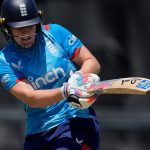Digital advocacy group Reset Australia identified and monitored 13 controversial public Facebook groups between January 2020 and March 2021.Memberships grew by 280 per cent in the 14 months alone to more than 115,000 people.Reset Australia executive director Chris Cooper said while the results confirmed what the organisation had long suspected, it was still surprising to see them in black and white.“The role of social media is contributing to vaccine hesitancy,” he told NCA NewsWire.The study’s results coincide with research by the University of Melbourne that found the percentage of Australians willing to get the COVID-19 jab had dropped from 74 to 66 per cent between October and February.This is despite Australia’s Therapeutic Goods Administration deeming each of the vaccines authorised for use to be “safe and effective”.The Reset Australia research found interactions with anti-vaxxer and conspiracy-led Facebook groups surged at the same time as national lockdown measures were introduced in March 2020 and then again during Melbourne’s restrictions between July and October.“We know that during these moments, particularly lockdowns … that created an opportunity for these kinds of groups to capitalise on the uncertainty felt by people,” Mr Cooper said.“Because they’re also trying to keep people engaged, there also tended to be more sensationalist content at that time.”Mr Cooper said while social media conglomerates did remove problematic sites, more pressure was needed.“It’s up to us, public health officials and journalists to call Facebook out,” he said.Reset Australia has developed a policy in response to the findings that would force social media companies to generate a live list of the most popular COVID-19-related URLs shared on its platforms.“Such a live list would help Australian public health authorities identify anti-vaccination narratives to inform community engagement responses,” the report stated.
Powered by WPeMatico






